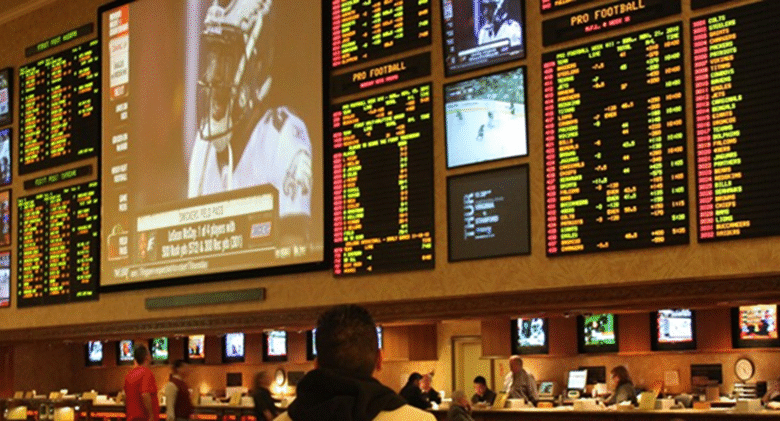Managing Stress After Losing Bets: Strengthening Emotional Control in Football Betting

Stress Management: refers to the process of understanding, regulating, and channeling emotional responses that arise after setbacks. In football betting, stress after loss is one of the most common and destructive emotional challenges. Losing a bet often triggers frustration, anxiety, and regret, which—if left unmanaged—can lead to impulsive decisions and further losses.
Stress develops through a sequence of emotional triggers: disappointment activates self-doubt, self-doubt breeds tension, and tension clouds judgment. Bettors under stress tend to abandon logic, making riskier decisions in an attempt to restore balance. Emotional control becomes the key mechanism that breaks this cycle, transforming reactive behavior into rational adaptation.
When bettors manage post-loss stress effectively, they not only recover mentally but also strengthen long-term performance. The following sections explore the psychology of loss, emotional awareness, and practical methods to achieve emotional balance after betting setbacks.
Understanding the Psychological Effects of Losing Bets
Losing a bet doesn’t only affect the wallet—it impacts the brain. Neuroscientifically, betting activates reward systems linked to dopamine release. Winning produces pleasure, but losing disrupts this cycle, increasing cortisol levels associated with stress and anxiety. The brain interprets loss as a threat, triggering a fight-or-flight response even though the situation involves no physical danger.
Loss-induced stress can be defined as the cognitive and emotional tension following an unfavorable betting outcome. It manifests as frustration (“I should have won”), guilt (“I made a bad decision”), or hopelessness (“I can’t win again”). These reactions interfere with logical reasoning and increase the likelihood of rash decisions.
Stress shares common ground with other emotional states like frustration, guilt, and fear. While frustration pushes bettors toward revenge betting, guilt suppresses motivation and leads to avoidance. The interplay of these emotions determines whether a bettor spirals into further loss or recovers with composure. Recognizing these patterns is the first step to emotional control—a theme that becomes central in the next section.
Emotional Awareness: The First Step Toward Regaining Control
Self-awareness bridges emotion and logic. Without recognizing emotions, control is impossible. Emotional awareness allows bettors to identify when stress begins to influence judgment, helping them separate reaction from response.
Emotional awareness and decision quality are interlinked attributes. When bettors understand how their emotions fluctuate during a session—especially after consecutive losses—they can regulate behavior consciously. During winning streaks, awareness prevents overconfidence; during losing streaks, it prevents despair.
The semantic closeness between self-awareness and emotional control lies in observation. Observing one’s thoughts and bodily sensations (elevated heartbeat, tension, irritation) transforms emotions from unseen forces into manageable signals. For instance, if after several losses you feel the urge to double your bet, awareness of that impulse gives you a chance to pause and reassess logically.
By learning to notice emotions in real time, bettors create space between feeling and action—a psychological pause where control begins. The next step is applying methods to stabilize these emotions.
Emotional Control in Football Betting: The Key to Post-Loss Recovery
Emotional control is the skill of managing one’s internal state despite external volatility. In football betting, it prevents impulsive recovery bets, emotional burnout, and destructive gambling cycles. A controlled bettor acknowledges loss without internal collapse, viewing it as part of a probabilistic system rather than personal failure.
Techniques like cognitive reframing, breathing control, and mindfulness help regulate post-loss stress. Cognitive reframing changes the narrative: instead of seeing a loss as incompetence, see it as data for learning. Breathing control reduces physiological stress by calming the nervous system, while mindfulness builds non-judgmental awareness of the present moment.
When comparing emotional vs emotionally stable bettors after losses, the differences are profound. Emotional bettors react immediately, placing compensatory bets out of anger or fear. Controlled bettors, by contrast, pause, evaluate, and return when the mind is clear. Emotional stability enhances mental recovery and discipline control, enabling bettors to reset effectively after setbacks.
Emotional control is not suppression—it is intelligent regulation. It transforms chaos into clarity, enabling consistent performance even under unpredictable circumstances.
Practical Techniques to Manage Stress After Losing Bets
Theoretical understanding must lead to actionable habits. The following structured steps provide a practical approach to managing post-loss stress:
Step 1: Take a Short Break After Every Significant Loss
Walk away for at least 15 minutes to allow emotional arousal to subside. This break restores perspective and prevents impulsive reactions.
Step 2: Record Emotional Reactions in a Journal
Reflect on your thoughts after losing bets. Identify whether frustration, fear, or anger dominates. This process externalizes emotion, making it easier to analyze.
Step 3: Implement a Cooldown Rule
Create a personal guideline: no new bets within one hour of a major loss. This rule converts emotional impulsivity into structured discipline.
Step 4: Engage in Relaxation Techniques
Practice deep breathing or short mindfulness meditations. These methods reduce cortisol levels and restore balance before the next betting session.
Step 5: Apply Less-Discussed Recovery Techniques
Try techniques like progressive muscle relaxation or guided visualization. Visualize responding calmly to loss instead of reacting impulsively—this builds emotional conditioning over time.
Comparing pre-loss and post-loss behavior highlights progress. Before learning control, bettors react emotionally and irrationally; after consistent stress management, they display patience and resilience. These small changes compound into long-term stability and better betting outcomes.
Reframing Losses: Turning Negative Experiences into Learning Opportunities
Reframing losses is a cognitive skill that transforms negative emotions into valuable feedback. Rather than viewing loss as a setback, treat it as an analytical tool. Each outcome, win or loss, provides data for refinement.
Behavioral psychology supports this approach. Studies show that individuals who reframe failure as feedback recover emotionally up to 40% faster than those who internalize loss. This illustrates the principle: If you reframe losses as lessons, emotional recovery accelerates.
From a factual standpoint, betting losses reveal weaknesses—biases in prediction, poor timing, or overconfidence. When analyzed constructively, these insights strengthen decision-making. The intersection between psychology and behavioral improvement proves that emotional healing and skill development can coexist.
Acceptance is not resignation; it’s clarity. When bettors shift perspective, stress evolves into focus, and pain becomes growth. This mindset builds resilience and restores confidence over time.
Case Studies: How Professional Bettors Manage Post-Loss Emotions
Consider Jake (a disciplined bettor) and Liam (an emotional bettor). Both experience losing streaks. Jake logs his decisions, identifies where emotion influenced judgment, and takes a break before returning. Liam reacts immediately, doubling his stake to recover losses.
After one month, Jake’s record shows steady improvement and reduced stress. Liam’s results fluctuate wildly, with increased anxiety and financial strain. The contrast between structured and emotional responses reinforces earlier lessons: control produces stability; impulse fuels instability.
Professional bettors often use structured routines—scheduled rest, analytical review sessions, and mindfulness—to maintain balance. These habits prevent burnout and sustain focus. By repeating principles of emotional awareness and control, bettors develop resilience that outlasts individual wins or losses.
Such discipline is not exclusive to professionals; casual bettors can adopt the same strategies to achieve greater emotional and financial balance.
Long-Term Benefits of Managing Stress and Emotional Balance
Consistent stress management offers measurable benefits for both performance and mental health. Data from sports psychology research indicate that individuals practicing emotional regulation experience a 25% improvement in decision accuracy and a 30% reduction in anxiety symptoms.
In football betting, this translates to fewer impulsive bets, greater focus, and sustainable confidence. The contextual terms mental resilience, emotional equilibrium, and decision control define this transformation. Bettors learn to detach self-worth from outcomes, allowing a calm and methodical approach to every wager.
Maintaining emotional balance builds habits that extend beyond betting—improving patience, critical thinking, and overall well-being. The structure of emotional control established here ensures logical progression from temporary setbacks to long-term success.
Choosing a Reliable Platform That Encourages Mindful and Responsible Betting
A safe and transparent betting environment supports emotional health. Reliable platforms provide fair play systems, responsible gaming tools, and account limits that help bettors regulate habits effectively.
Local and regional access also play a role in ensuring legality and safety. Platforms that align with local regulations create trust and reduce psychological tension related to uncertainty or fraud.
If you want to explore more insights about football and responsible betting, visit ทางเข้า ufabet ล่าสุด, which also offers a wide range of football and sports entertainment services. This trusted platform promotes responsible gaming practices and provides tools to help maintain emotional control and healthy betting routines.
In conclusion, managing stress after losses is not about suppressing emotion—it’s about transforming it into clarity. Emotional control allows bettors to recover, learn, and grow stronger after each setback. By integrating awareness, discipline, and perspective, betting becomes less about chance and more about controlled mastery. Responsible gaming begins where emotion meets logic, and long-term success follows those who remain calm in defeat.




